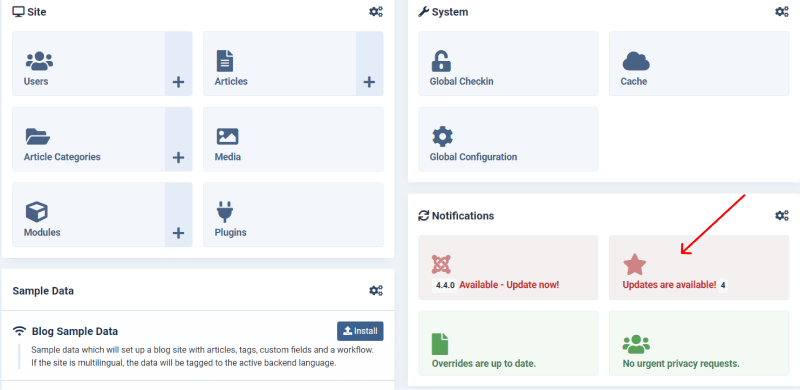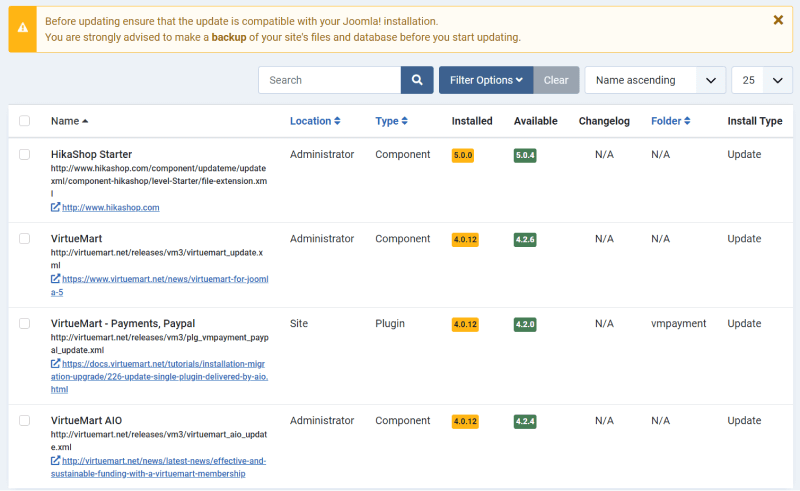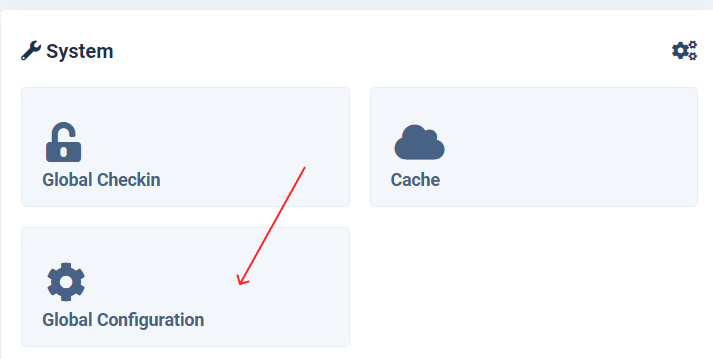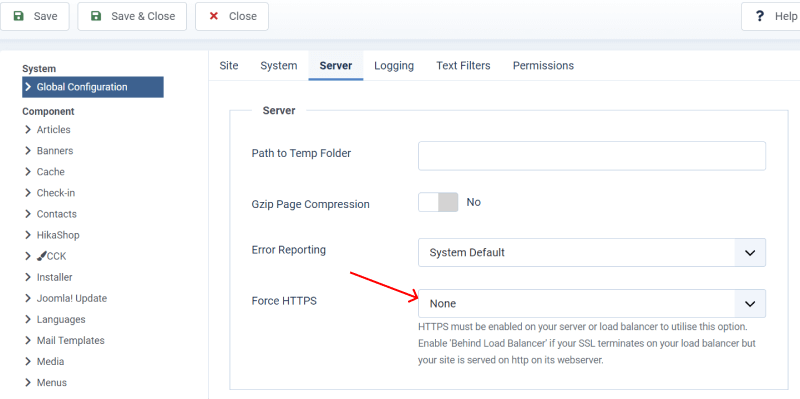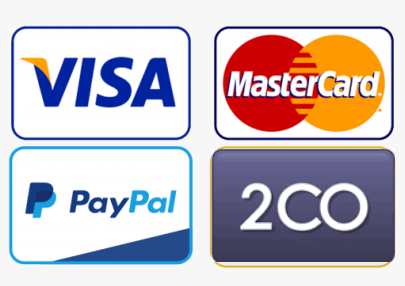How to Secure Joomla Website
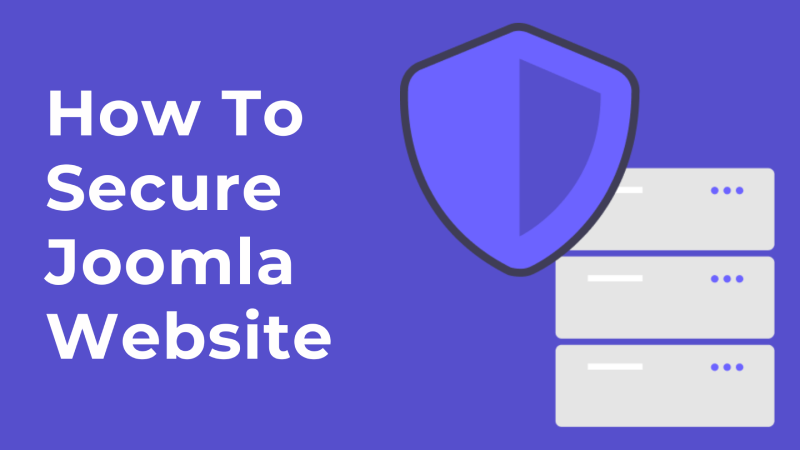
These days, no one can tell that securing your website isn't important. Keeping your website secure means you get to decide who can access and change things on your site. Think about all the personal information that might be on your website. Whether it's your own info or your visitor's, like names, email addresses, or even payment information, you want to keep it safe.
Moreover, a secure website helps you to build trust with your visitors. When people see that your website is secure, they're more likely to feel comfortable sharing their information and doing business with you.
Additionally, securing your website can protect it from viruses and malware. These bugs can infect your site and cause all sorts of problems, from slowing it down to crashing it completely.
A secure website can even improve your search engine ranking. Search engines like Google prefer to show secure websites to their users because they want to keep users safe. Also, if you want to rank your website higher in any search engine, you can read our article about Website Optimization
Keep Joomla Updated
Make it a habit to check for updates for both Joomla's core software and any installed extensions or plugins. You can do this by logging into your Joomla administrator backend. When updates are available for Joomla's core software, you'll see a notification in your Joomla administrator backend. Simply follow the prompts to initiate the update process. Joomla usually provides a one-click update option, making it easy to keep your core software up to date.
Backup Your Website
Before performing any updates, it's important to create a backup of your website. This ensures that if anything goes wrong during the update process, you can easily restore your site to its previous state. Schedule regular backups of your Joomla website and database. In case of a security breach or data loss, you can quickly restore your website to a previous state.
Secure Hosting
Choose a reliable hosting provider that offers security features such as regular backups, firewalls, intrusion detection systems, and malware scanning.
Use Strong Passwords
Use complex passwords for your Joomla admin accounts, database, FTP, and hosting control panel. Avoid using easily guessable passwords and consider using a password manager.
Change Default Settings
Change default usernames, database prefixes, and other default settings to make it more difficult for attackers to exploit known vulnerabilities.
Enable Two-Factor Authentication (2FA)
Enable two-factor authentication for your website's admin panel if your platform supports it. 2FA adds an extra layer of security by requiring users to provide a second form of verification, such as a code sent to their phone, in addition to their password.
Use Original Extensions from Official Websites
Only install extensions from trusted sources, and regularly update them to the latest versions. Remove any unused extensions to minimize potential attack vectors.
Use Joomla Extension to Secure your Website
It's important to choose extensions that are regularly updated and supported by reputable developers to make sure your website is protected.
Akeeba Backup
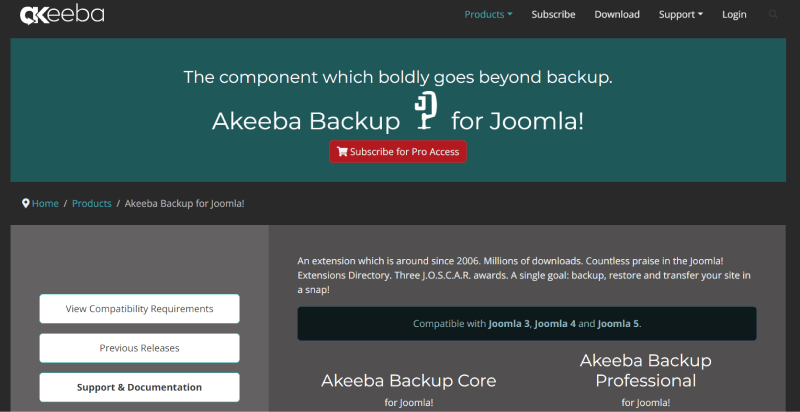
Akeeba Backup is a popular backup solution for Joomla that allows you to create full site backups, including files and database, with just a few clicks. Regular backups are crucial for recovering your website in case of data loss or security breaches. Akeeba Backup also offers features like automatic backups and remote storage options for added convenience and security.
Admin Tools
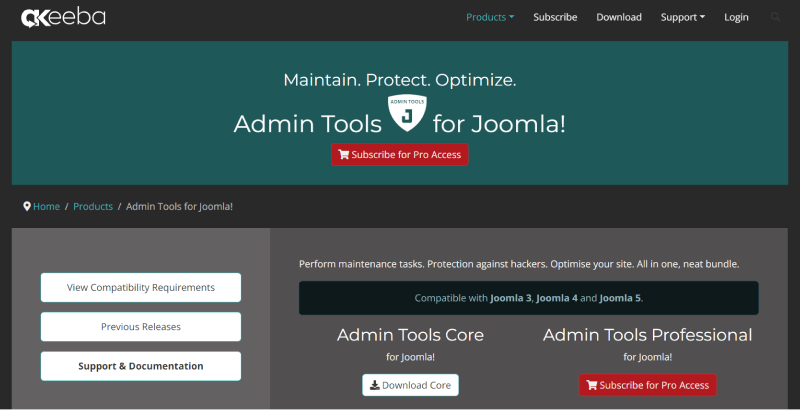
Admin Tools is a comprehensive security extension for Joomla that offers a range of features to help protect your website. It includes tools for securing your administrator area, blocking malicious IP addresses, monitoring file changes, and implementing additional security measures such as CAPTCHA and Two-Factor Authentication (2FA). Admin Tools also includes a Web Application Firewall (WAF) to protect against common security threats.
RSFirewall!
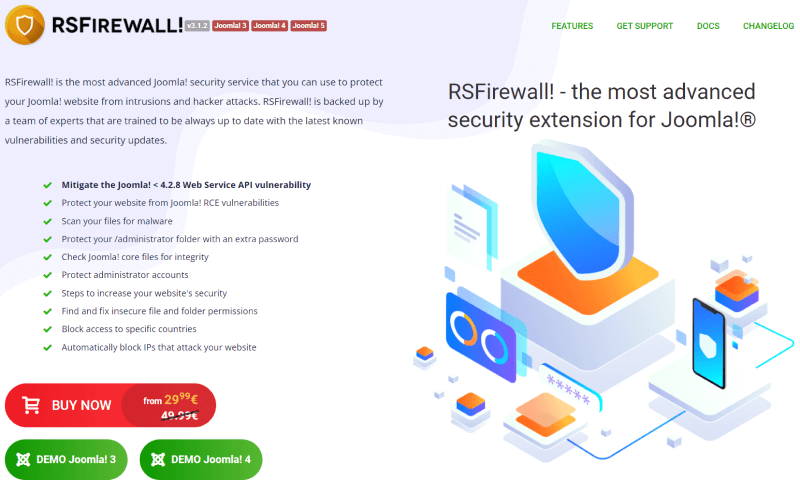
RSFirewall! is a powerful security extension for Joomla that helps protect your website against security threats and vulnerabilities. It includes features such as file integrity monitoring, malware scanning, IP blocking, and protection against SQL injection and cross-site scripting (XSS) attacks. RSFirewall! also provides regular security updates to keep your website protected against the latest threats.
Secure File Permissions
Set appropriate file and directory permissions to prevent unauthorized access to sensitive files. Joomla recommends setting directories to 755 and files to 644.
HTTPS Encryption
Enable HTTPS encryption for your website to secure data transmission between your users and the server, protecting against eavesdropping and man-in-the-middle attacks.
Before enabling HTTPS, you need to obtain an SSL (Secure Sockets Layer) certificate for your website. Many web hosting providers offer SSL certificates, and some may even provide them for free through services like Let's Encrypt.
- Log in to your Joomla administrator backend.
- In the Joomla administrator menu, go to "System" > "Global Configuration".
- In the Global Configuration screen, navigate to the "Server" tab.
- Look for the "Force HTTPS" option. This option forces Joomla to use HTTPS for all communication. Enable this option by setting it to "Entire Site".
Implement Web Application Firewall (WAF)
Consider using a WAF to monitor and filter HTTP traffic to your Joomla website, protecting it from common web attacks such as SQL injection and cross-site scripting (XSS).
Monitor for Security Issues
Regularly monitor your Joomla website for security issues using security scanning tools and services. Set up alerts for suspicious activity.
User Permissions
Limit user permissions to only what is necessary for each user role. Avoid giving unnecessary administrative privileges to users.
Add .htaccess file
Adding and configure .htaccess - file to {yours-site}/administrator folder. This file may look like below:
SetEnvIf Request_URI ".css$" AdminUri SetEnvIf Request_URI ".js$" AdminUri AuthType Basic AuthName "Restricted Access" AuthUserFile /home/secure_passwords Require valid-user # Add the exceptions for matched URL's Order Deny,Allow Deny from all Allow from env=AdminUri Satisfy any
This file limit access to site admin only the valid users. The file "secure_passwords" - you may create with help "htpasswd" - apache utilite.

